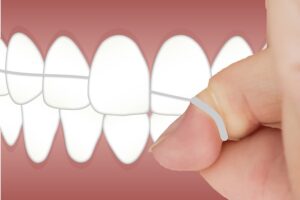August 22, 2021
10 Tips For Teeth And Gum Care
 The teeth have a protective barrier that’s made of teeth and gums working together to form a protective layer against substances that would otherwise injure the oral mucosa. However, bacteria are constantly attacking teeth in the mouth resulting in various teeth and gum problems. But don’t fret, with good dental hygiene practices, you can keep them at bay.
The teeth have a protective barrier that’s made of teeth and gums working together to form a protective layer against substances that would otherwise injure the oral mucosa. However, bacteria are constantly attacking teeth in the mouth resulting in various teeth and gum problems. But don’t fret, with good dental hygiene practices, you can keep them at bay.
If you are experiencing any teeth and gum problems, don’t delay visiting emergency dentists near you. In the meantime, here are ten tips for teeth and gum care!
#1: Brush Your Teeth After Eating
Brushing after each time you eat removes plaque, food particles, and other debris from the teeth that can be harmful to teeth and gums if not removed. Tooth brushing before bedtime prevents tooth decay while sleeping. Furthermore, the friction of tooth brushing stimulates blood flow to the teeth, lowers your risk for developing pneumonia, and clears congested nasal passages for some people who snore or have chronic congestion.
#2: Floss Once A Day
Dental floss is your tooth’s best friend! It helps to get rid of plaque and bacteria that can lead to many common mouth problems, such as cavities, gingivitis, and gum disease. Flossing also removes food particles from around teeth which can contribute to bad breath.
#3: Drink Plenty Of Water
When teeth and gums are dry, they become more susceptible to decay. Needless to say, drinking enough water will make them less dry. Drink at least two glasses of water a day to help your teeth and gums stay moist.
#4: Eat Healthy Foods
Eating healthy food, such as fruits, vegetables, and whole grains, is a valuable part of teeth and gum care. Eating these foods regularly is good for teeth because they affect the oral microbiome, i.e., the population of bacteria that live in our mouths. Plants contain fibers that can help to suppress the growth of certain odiferous bacteria (such as Streptococcus mutans) and also attract other types of beneficial bacteria. They also contain large amounts of potassium and phosphorus which act to counteract the effects of acids in the mouth.
#5: Visit Your Dentist Regularly
Regular teeth cleaning will help prevent the teeth from developing cavities or gum disease. Teeth may also last longer with routine teeth cleanings. Also, contrary to what you may think, this may prevent expensive dental bills in the long run.
#6: Avoid Chewing On Ice And Hard Food
If you’re chewing on ice or crunching hard foods like whole carrots, it puts a lot of pressure on your teeth which can result in teeth wearing down faster because they are coming into contact with other teeth even more often than normal. A side effect of chewing too much is that your enamel starts to thin out due to the increased need for dental protection.
#7: Watch Out For Acidic Foods And Drinks
Your teeth are partly enamel (inorganic) and partly dentin (organic). Dentin is the white part of teeth that contains nerve endings and blood vessels. Acids in the diet dissolve particles from both the outer layer of teeth – enamel – and from inside teeth – dentin.
Acidic foods cause tooth decay because they make it easier for bacteria to penetrate the tooth’s surface. The acid triggers an inflammatory response when these foreign substances come in contact with your body’s natural defense mechanism, saliva. This causes pain during brushing – as well as a chronic irritation that remains after eating or drinking acidic beverages.
#8: Stop Smoking
Every time you smoke, this penetrates deep into your teeth and gums, destroying teeth enamel and exposing them to decay as the acid from food and drink reacts with exposed teeth surfaces. Smoke also increases the stickiness of plaque on teeth, which can lead to serious dental problems like tooth decay or bad breath.
Furthermore, cigarette smoking dries out the mouth because the nicotine in cigarettes causes a reduced flow of saliva when chewing tobacco.
#9: Eat Xylitol
Eating xylitol can help to keep teeth from being damaged by bacteria. It also helps to create a protective barrier between teeth and oral mucosa. Xylitol is an all-natural ingredient that comes from plants in which sugar is extracted. The teeth are protected against the acid created when the natural bacteria in the mouth eat food particles left on the teeth.
#10: Get Plenty Of Sleep
One of the most important things that you can do for teeth and gum care is to get plenty of sleep. Sleep gives your body time to recover from daytime activity and repair its cells. If you don’t allow your body enough time to sleep, it won’t have time to take care of the teeth and gums.
Final Thoughts
The teeth and gums are the gateways to your mouth, so they must stay healthy. If you can keep them clean of plaque buildup and bacteria by following a good teeth and gum care routine, you will be able to avoid tooth decay or gum disease. Follow these 10 tips for healthier teeth and gums!